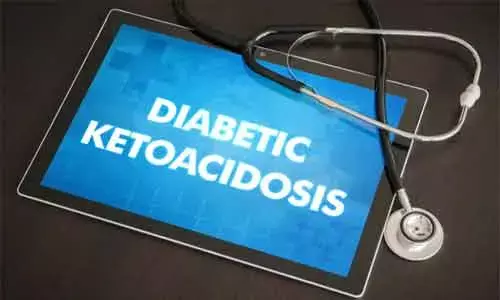- Home
- Medical news & Guidelines
- Anesthesiology
- Cardiology and CTVS
- Critical Care
- Dentistry
- Dermatology
- Diabetes and Endocrinology
- ENT
- Gastroenterology
- Medicine
- Nephrology
- Neurology
- Obstretics-Gynaecology
- Oncology
- Ophthalmology
- Orthopaedics
- Pediatrics-Neonatology
- Psychiatry
- Pulmonology
- Radiology
- Surgery
- Urology
- Laboratory Medicine
- Diet
- Nursing
- Paramedical
- Physiotherapy
- Health news
- Fact Check
- Bone Health Fact Check
- Brain Health Fact Check
- Cancer Related Fact Check
- Child Care Fact Check
- Dental and oral health fact check
- Diabetes and metabolic health fact check
- Diet and Nutrition Fact Check
- Eye and ENT Care Fact Check
- Fitness fact check
- Gut health fact check
- Heart health fact check
- Kidney health fact check
- Medical education fact check
- Men's health fact check
- Respiratory fact check
- Skin and hair care fact check
- Vaccine and Immunization fact check
- Women's health fact check
- AYUSH
- State News
- Andaman and Nicobar Islands
- Andhra Pradesh
- Arunachal Pradesh
- Assam
- Bihar
- Chandigarh
- Chattisgarh
- Dadra and Nagar Haveli
- Daman and Diu
- Delhi
- Goa
- Gujarat
- Haryana
- Himachal Pradesh
- Jammu & Kashmir
- Jharkhand
- Karnataka
- Kerala
- Ladakh
- Lakshadweep
- Madhya Pradesh
- Maharashtra
- Manipur
- Meghalaya
- Mizoram
- Nagaland
- Odisha
- Puducherry
- Punjab
- Rajasthan
- Sikkim
- Tamil Nadu
- Telangana
- Tripura
- Uttar Pradesh
- Uttrakhand
- West Bengal
- Medical Education
- Industry
An episode of diabetic ketoacidosis may increase outpatient mortality risk

New Zealand: A recent study in Acta Diabetologica reported a significant outpatient mortality risk following an episode of diabetic ketoacidosis (DKA) with most deaths due to macrovascular or infectious causes.
In recent decades, the rate of inpatient mortality associated with DKA has decreased steadily. However, previous studies have shown the rate of significantly increased outpatient death following an episode of survived DKA. Therefore, James A. D. Shand, Auckland City Hospital, Grafton, Auckland, New Zealand, and colleagues undertook this study to examine the observed increase in death following an episode of DKA.
For this purpose, the researchers completed a retrospective cohort study to investigate rates and death causes in people admitted with DKA between 2013 and 2018. DKA was confirmed by pre-defined biochemical parameters and death cause was extracted from several sources. They were followed up for two years after discharge for all patients and the main time point for the analysis was one-year mortality.
Based on the study, the researchers reported the following:
- The researchers identified 818 admissions to hospitals with DKA, affecting 284 people.
- Twenty people died as inpatients and a further 40 people died during the two-year follow-up. Of these 60 participants, the cause of death was able to be determined for 41 (68%), with most deaths occurring due to infection or macrovascular disease.
- Risk factors for death within a year of hospital discharge included older age, intellectual impairment, vascular complications of diabetes, and residential care living.
- Those who survived an episode of DKA had a one-year age-corrected mortality rate 13 times higher than the general population. This was more marked in the younger cohort with those aged 15–39 years being 49 times more likely to die in the year after surviving a DKA admission compared to their general population counterparts.
"The study should prompt the investigation of predictive scoring tools to identify those at increased risk of mortality after DKA and encourage the development of targeted interventions to reduce mortality," the researchers conclude.
Reference:
Shand, J.A.D., Morrow, P. & Braatvedt, G. Mortality after discharge from hospital following an episode of diabetic ketoacidosis. Acta Diabetol (2022). https://doi.org/10.1007/s00592-022-01953-5
Dr Kamal Kant Kohli-MBBS, DTCD- a chest specialist with more than 30 years of practice and a flair for writing clinical articles, Dr Kamal Kant Kohli joined Medical Dialogues as a Chief Editor of Medical News. Besides writing articles, as an editor, he proofreads and verifies all the medical content published on Medical Dialogues including those coming from journals, studies,medical conferences,guidelines etc. Email: drkohli@medicaldialogues.in. Contact no. 011-43720751


